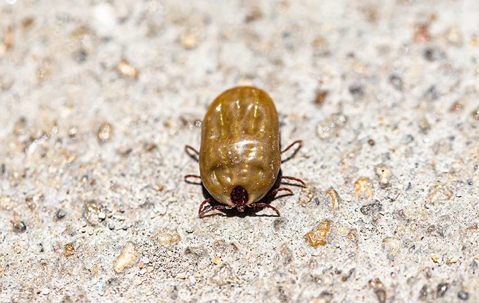Ticks are a type of arachnid. While they may be closely related to spiders, ticks don't have the same appearance, speed, or diet as a spider does. Instead, these tiny, blood-consuming creatures have small, flat bodies that allow them to easily climb onto your close or squeeze into the tiniest crevices of your home without your knowledge.
EcoTech Pest Control Services has been dealing with these external parasites for decades. Our Tampa pest control specialists all live in the area and understand how the climate and other factors in this area affect the tick's activity and behavior. Here is a look at some of the most effective strategies that you can try to eliminate these pests from your home.
The Life Cycle Of Tick: A Comprehensive Overview
The life cycle of ticks can look slightly different from species to species. However, they all go through four stages; egg, larva, nymph, and adult. Compared to other types of arachnids, it takes a tick a long time to reach adulthood. On average, a tick won't reach full maturity until at least two years after hatching from the egg.
Here is an in-depth look at the different life cycles that a tick goes through:
- Egg: The female tick usually lays eggs in an animal's fur; this allows the eggs to stay hidden, and the baby ticks will have a food source available to them as soon as they hatch.
- Larva: A few weeks after the female tick places the egg on an animal, a larva will emerge from the egg, ready to eat. The larva looks like a smaller version of an adult tick. Certain types of ticks will have six legs during the larva stage. The larva will usually stay on the host that it hatched on and will continue to drink the host's blood until it is ready to molt and enter the next stage.
- Nymph: It typically takes one year for the tick to go from the larva stage to the nymph stage. All tick species have eight legs during this stage. Like the larva, the nymph will need to find a reliable food source and eat almost continuously until it reaches the adult stage.
- Adult: The final stage usually takes two to three years for the tick to reach. Many ticks are unable to make it to this stage because they can't find a reliable food source.
Most ticks in Tampa will pick a new host at each stage of life. However, certain ticks prefer to stay on the same host while transitioning through different life stages. While this may be a convenient option for the tick, having an external parasite taking blood for an extended period of time is not good for the host.
Tick-Borne Diseases: The Silent Threat Of Tick Bites
When a tick bites a person or animal infected with a disease, the tick can become a carrier of that disease. Ticks can spread a variety of diseases at all stages of life. Some of the most common illnesses transmitted by ticks include Rocky Mountain spotted fever, Lyme disease, and tularemia.
Tick Prevention: Remedy Factors That Attract Tick To Your Property
Ticks like shaded areas and are usually found in tall grass or heavily wooded areas. To keep ticks away from your Tampa home, give your pets flea and tick medicine during the summer. Also, keep the grass in your yard cut as short as possible.
Expert Tick Control Services: Keeping Your Property Tick-Free
If you are tired of battling ticks in your Tampa yard, EcoTech Pest Control Services can help you. Our experienced team uses the latest treatments to ensure that your yard and home are tick-free permanently. Give us a call today to schedule your free inspection and to learn more about our residential and commercial pest control services in Tampa.

